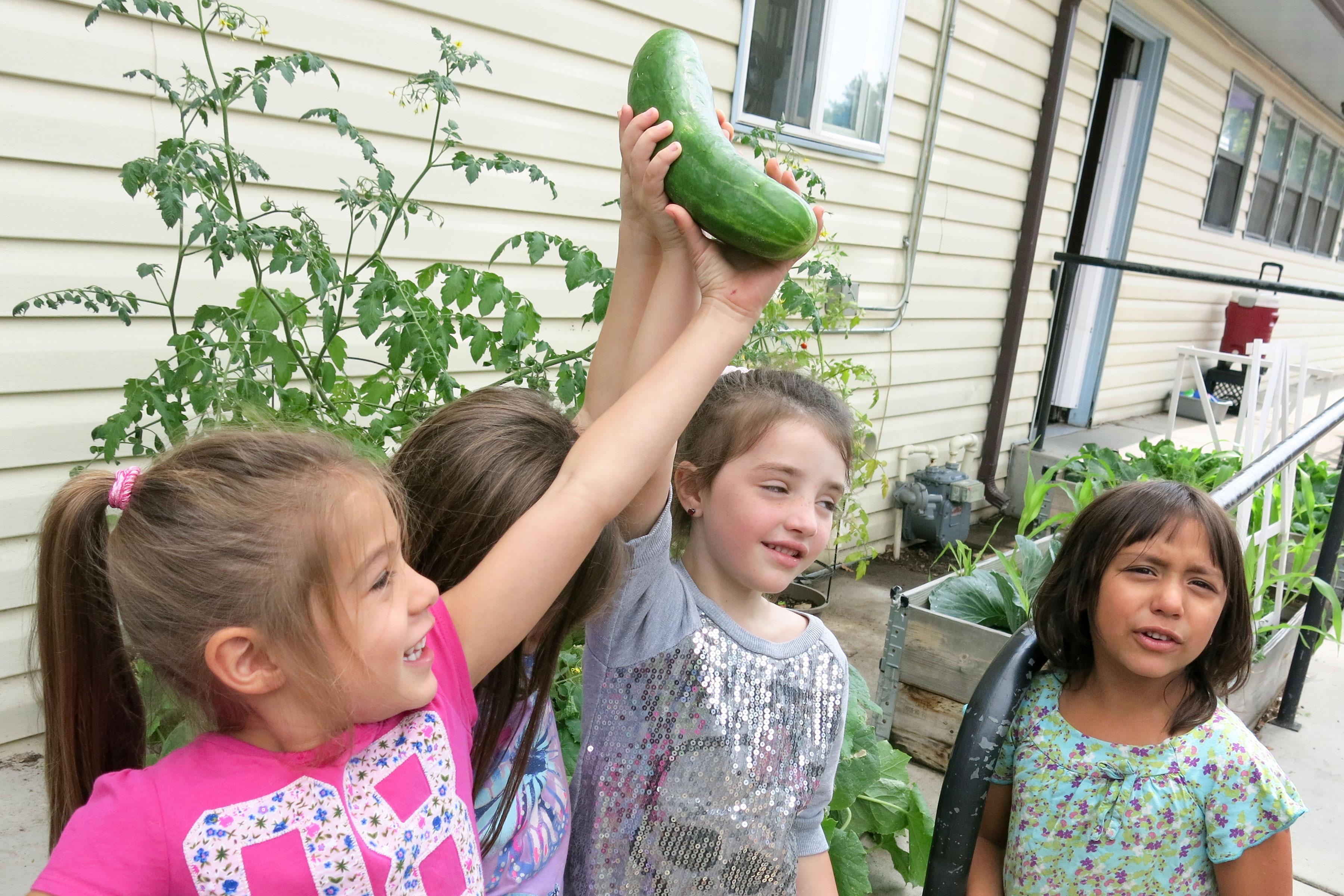

In a typical preschool, you’re already likely to see signs of one of the state’s biggest health challenges: obesity. One in five Colorado children on average, ages two to four, is obese, according to the 2016 Kids Count.
In the lunchroom at #1 Child Enrichment Center in Greeley though, their children already seem understand what’s good for them. They declare their enthusiasm for food choices other kids resist. “I like green beans!” one child announces. “We’re eating apple!” says another.
Lunch today is a vegetable soup, prepared fresh in the kitchen. A third child chimes in to state “We always have lentil soup!”
Not long ago the state health department came to center director Nancy Fox-Clement with a proposal: Redo the menu with a big focus on fresh. She agreed. Fox-Clement says it was a little rough at first, but then the kids adapted. Now they have fresh fruits and vegetables every day, every meal.

The program, called CHOP — Cooking up Healthy Options with Plants — provides nutrition assistance and education to child and adult care programs serving low-income Coloradans. It started in both Greeley and Pueblo, two towns with high child obesity rates.
One of the key elements is getting the kids digging in the dirt. As they scramble out of the lunchroom, several of five-year-old girls races to a series of raised garden beds by the playground.
“We have tomatoes,” one girl says, as a teacher asks what else is growing. “We have corn!” comes the answer. The kids raised these vegetables themselves. They planted them, they watered them. Now they’re harvesting them.
“We’re teaching the kids to eat different vegetables, to grow different vegetables, to pick different vegetables,” Fox-Clement says. “We’re going from seed to plant to product. And who’s pollinating. I mean we’ve talked about everything.”
One in six kids don’t eat fruit every day, according to state health department data. The numbers are even worse for vegetables — almost one in three.

The money for CHOP comes from a $500,000 USDA grant. The statewide program launched in child care centers and homes backed by the Colorado Child and Adult Care Food Program. Brittany Martens, CHOP’s nutrition educator, says elementary, middle and high schools have benefitted from farm to school efforts. What’s new here, is getting to the kids in preschool.
“We’re really frontiering in Colorado the first farm to preschool program because we’re wanting to hit these children at age 3 to 5,” Martens says. “They’re going to be pros when they go to elementary school. They’re going to be teaching (the other students) about spinach.”
Lindsey Minne, a mother with a pair of children at the Greeley day care, says she’s seeing an impact at home. Her kids demand more fruits and vegetables and fewer snacks.
“It definitely helps because that’s what they want. So I don’t argue, I don’t fight with them,” Minne says. “It’s more about focusing on what they like, and day care has definitely helped that a lot.”
The gardening has been a big hit with her kids, Minne says and she hopes to make it “something to do in the future, when I’m not in an apartment.”

Teacher Erin Delarosa sees that excitement in the children too. She’s convinced the program will make a difference in their lives. Kids who are “refusers,” turning down vegetables, often come around once they see the other children eating them. Think of it as vegetable peer pressure.
“I have a couple of girls that are super excited to pick everything everyday,” Delarosa says. They show it off and say “look, I’m eating, let’s try it.” For her, that happens because the kids have a hand in the gardening.
Armed with a series of compelling statistics, Jennifer Dellaport of the state’s health department makes the point that if “you’re overweight as a five-year-old there’s a good chance that you’ll be an overweight adult.”
Children who are overweight or obese at 18 months were more than twice as likely to be obese at age 4 to 6, she says. Forty percent of overweight children remain overweight during adolescence. Overweight adolescents have a 70 percent chance of being overweight or obese as an adult.
All that extra weight is linked to later life risks such as heart disease, stroke, diabetes and some cancers. That’s why the state health department is putting on a full court press to combat childhood obesity. It’s not just the gardening push. They’re educating pregnant moms and talking about the dangers of sugary drinks.
Dellaport says weight loss for younger children in Colorado’s WIC program, the Special Supplemental Nutrition Program for Women, Infants and Children, is an indicator of early success.
“That’s a bright spot,” Dellaport says. “I think Colorado is a great place to do this kind of work because we have people that are interested in healthy living, right?”









